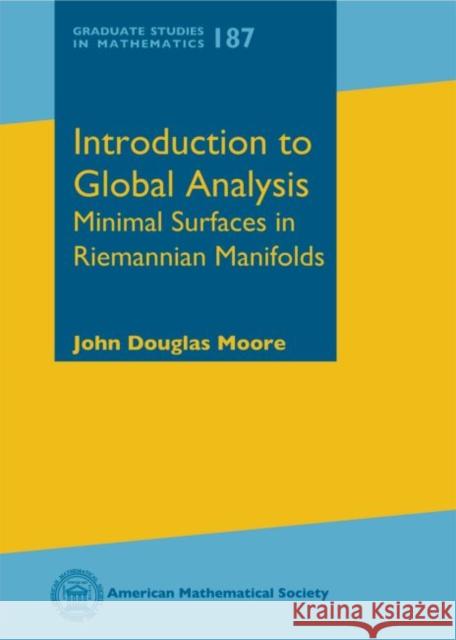Introduction to Global Analysis: Minimal Surfaces in Riemannian Manifolds » książka
Introduction to Global Analysis: Minimal Surfaces in Riemannian Manifolds
ISBN-13: 9781470429508 / Angielski
During the last century, global analysis was one of the main sources of interaction between geometry and topology. One might argue that the core of this subject is Morse theory, according to which the critical points of a generic smooth proper function on a manifold $M$ determine the homology of the manifold. Morse envisioned applying this idea to the calculus of variations, including the theory of periodic motion in classical mechanics, by approximating the space of loops on $M$ by a finite-dimensional manifold of high dimension. Palais and Smale reformulated Morse's calculus of variations in terms of infinite-dimensional manifolds, and these infinite-dimensional manifolds were found useful for studying a wide variety of nonlinear PDEs. This book applies infinite-dimensional manifold theory to the Morse theory of closed geodesics in a Riemannian manifold. It then describes the problems encountered when extending this theory to maps from surfaces instead of curves. It treats critical point theory for closed parametrized minimal surfaces in a compact Riemannian manifold, establishing Morse inequalities for perturbed versions of the energy function on the mapping space. It studies the bubbling which occurs when the perturbation is turned off, together with applications to the existence of closed minimal surfaces. The Morse-Sard theorem is used to develop transversality theory for both closed geodesics and closed minimal surfaces. This book is based on lecture notes for graduate courses on ``Topics in Differential Geometry'', taught by the author over several years. The reader is assumed to have taken basic graduate courses in differential geometry and algebraic topology.











